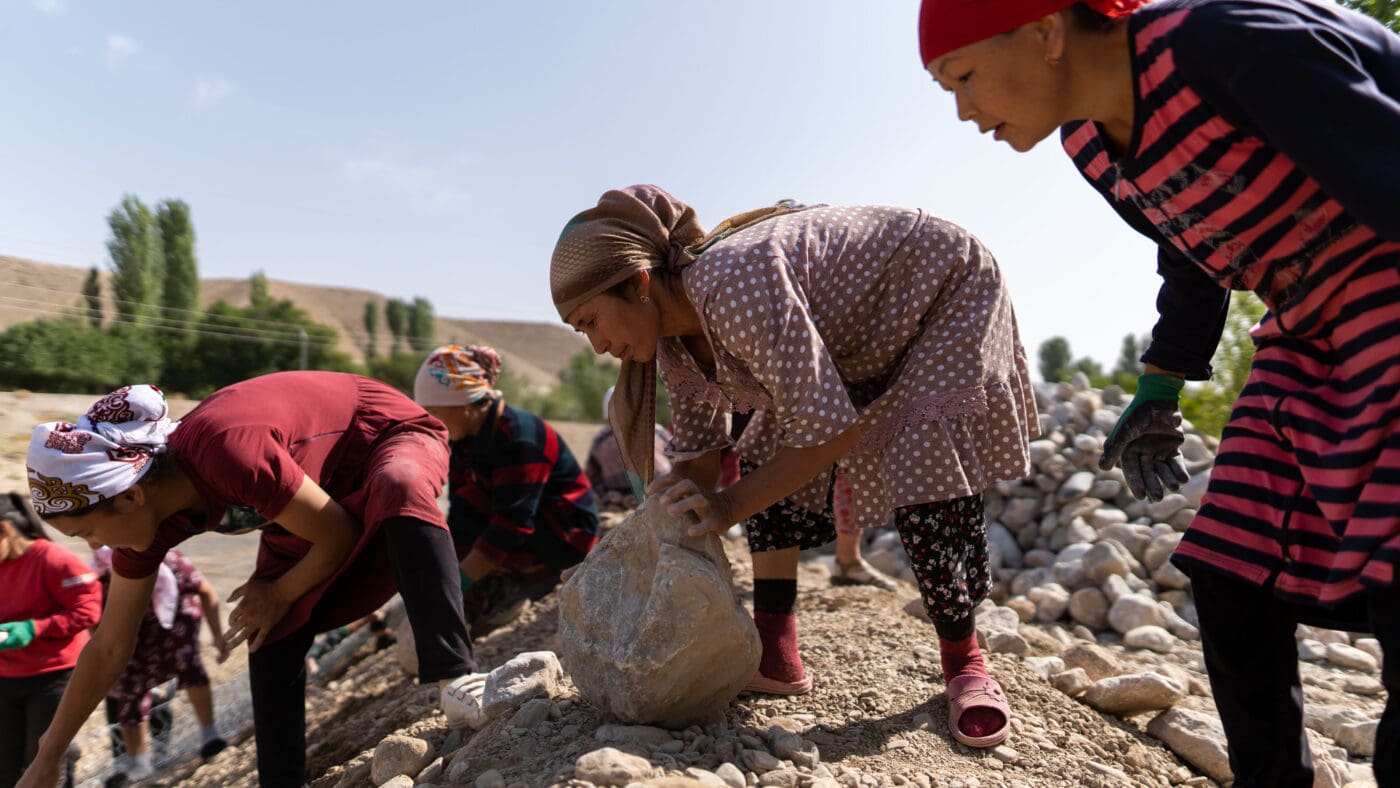
Kyrgyzstan
Recurring climate-related shocks and disasters including floods and mudslides also hamper the resilience of families and entire communities.
Limited by Agriculture
The small size of farms, limited access to equipment and finance, poor farming practices and poor post-harvest storage techniques limit agricultural productivity in Kyrgyzstan – meaning the country is unable to meet domestic demands. As a result, Kyrgyzstan depends on imports of basic foods: 30% for wheat, 84% for vegetable oil and 37% for sugar. This high dependency continues to impact the most vulnerable food-insecure households, which spend more than half of their budgets on food.
While the rates of stunting and wasting has fallen among children and adolescents, obesity rates have increased. These conditions are often the result of nutritious foods being too expensive and families having limited knowledge around nutrition and healthy diets.
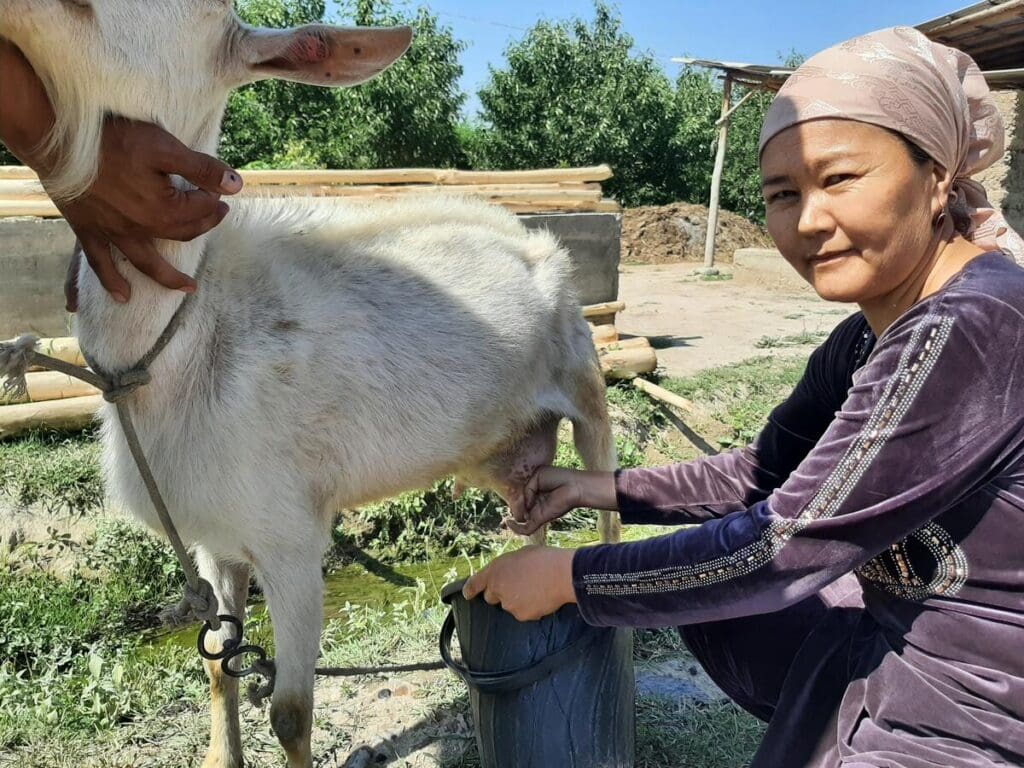
WFP’s Work in Kyrgyzstan
WFP has been present in the Kyrgyz Republic since 2008. The UN agency works at all levels of Kyrgyz society – from the field level up to government ministries – to ensure the voices and needs of vulnerable communities living in the remotest valleys are heard by decision-makers:
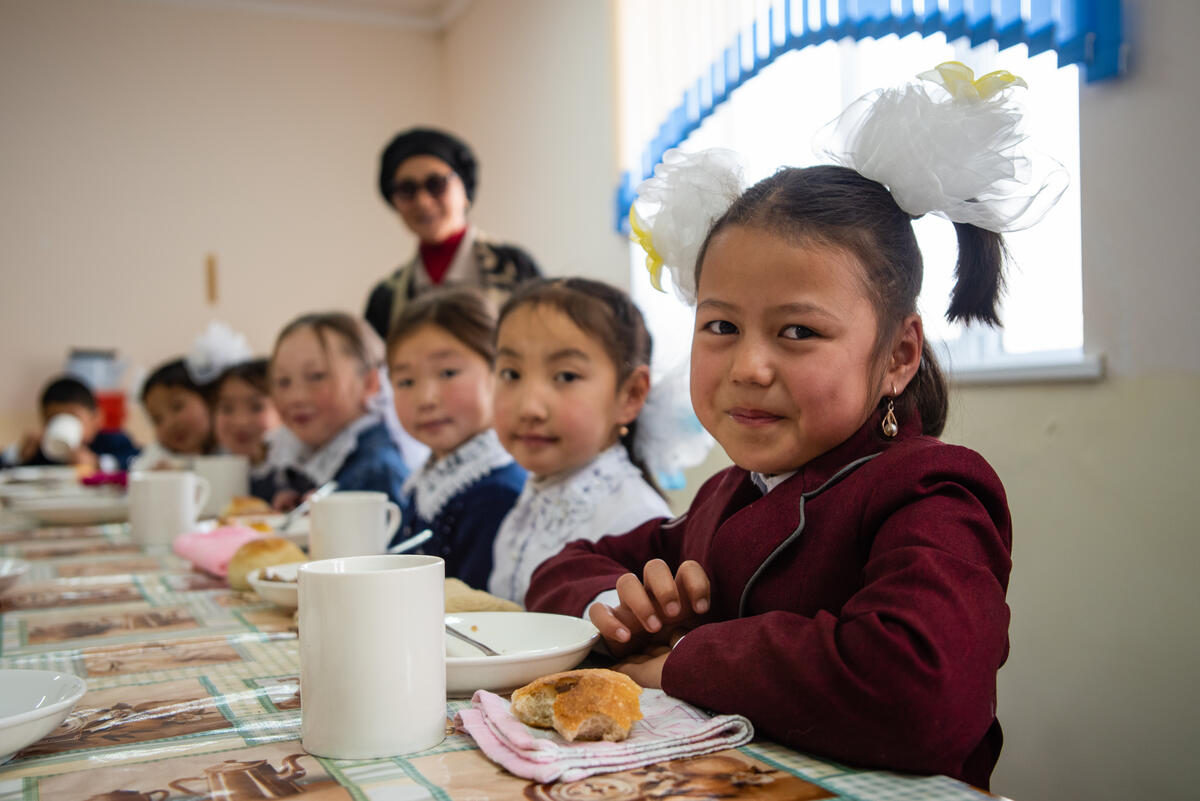
WFP created a sustainable, cost-effective model to introduce hot meals in about 640 primary schools. The Kyrgyz government is replicating WFP’s model to further expand the reach of the program to all of 2,200 primary schools across the country. Every day, children receive one hot, nutritious meal of soups or cereal porridges, fresh pastries and vitamin-rich drinks. WFP provides fortified wheat for the meals as well as technical assistance and trainings for school cooks.

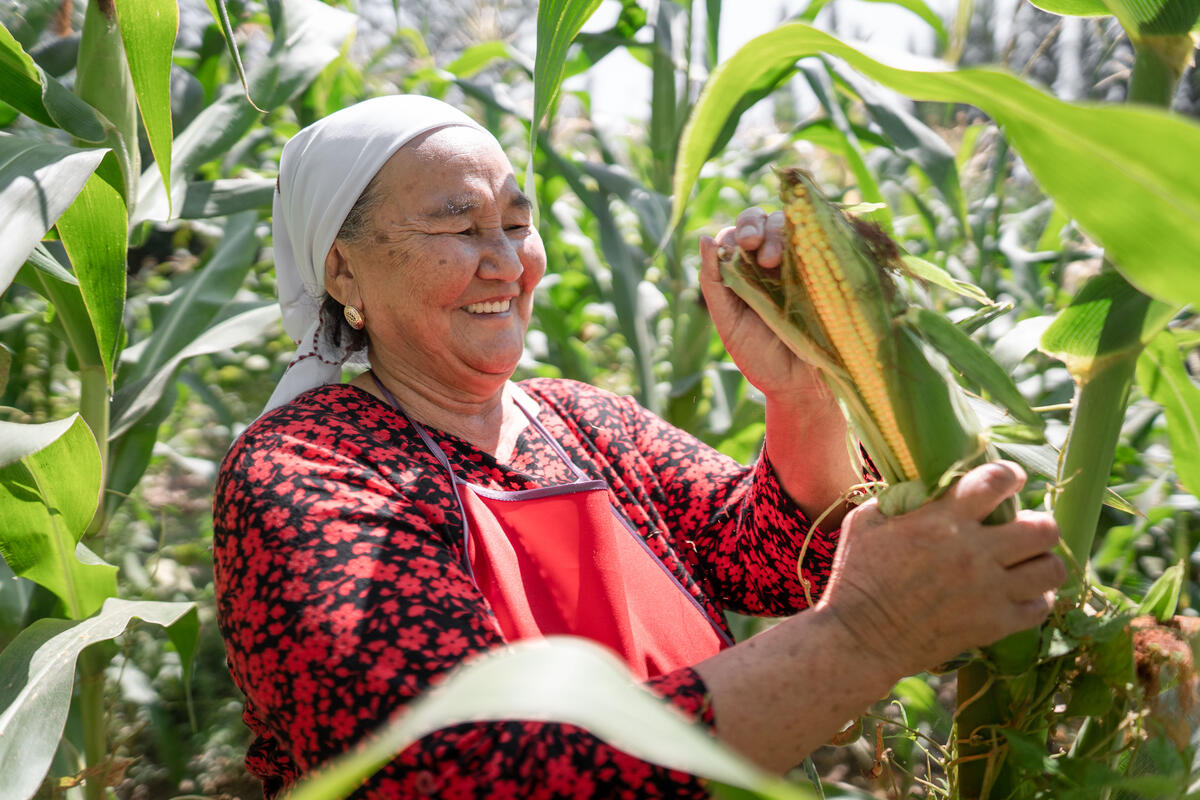
WFP provides families with food or cash as they build or rehabilitate community assets like bridges. Program participants can also take skills trainings on farming techniques, sustainable management of natural resources, post-harvest storage, food processing and marketing. WFP has a special focus on empowering women, who make up a large proportion of the rural workforce but tend to work in lower-end value chains.

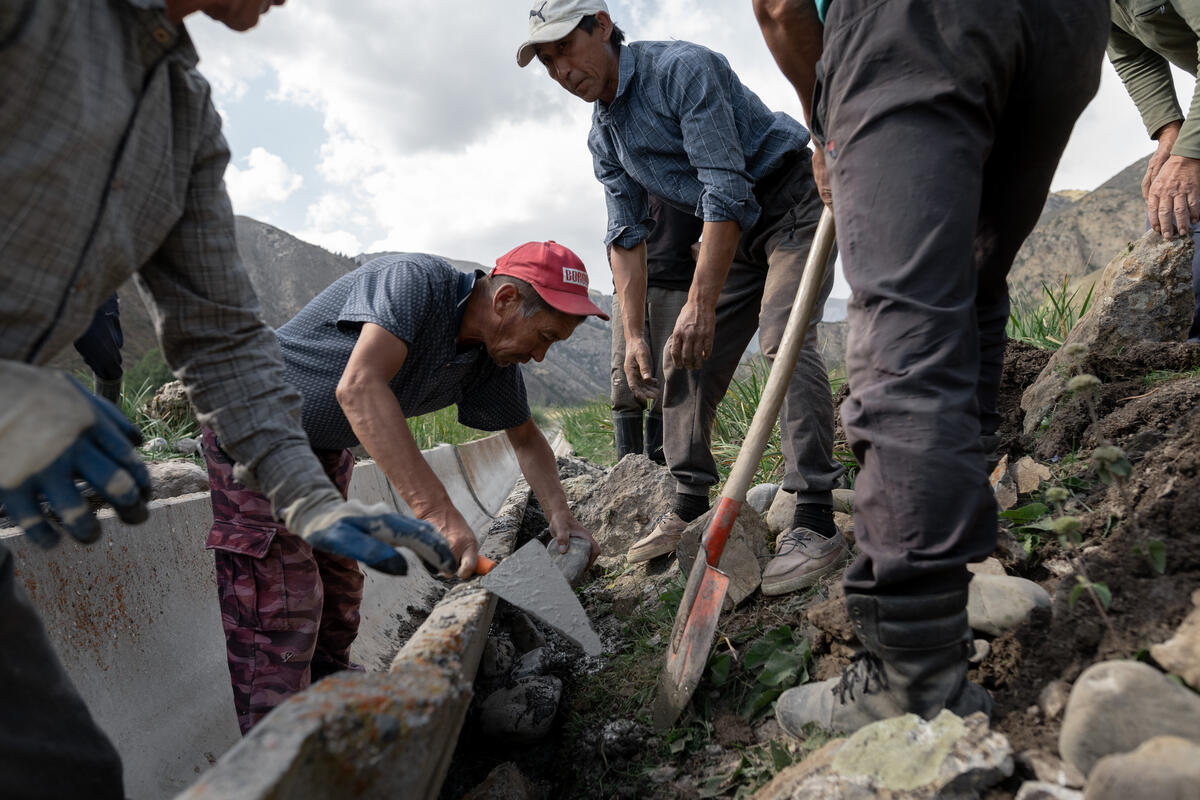
In areas prone to disasters and climate change risks, WFP also provides food or cash to communities as they participate in activities that improve their disaster preparedness and mitigate climate-related risks.
